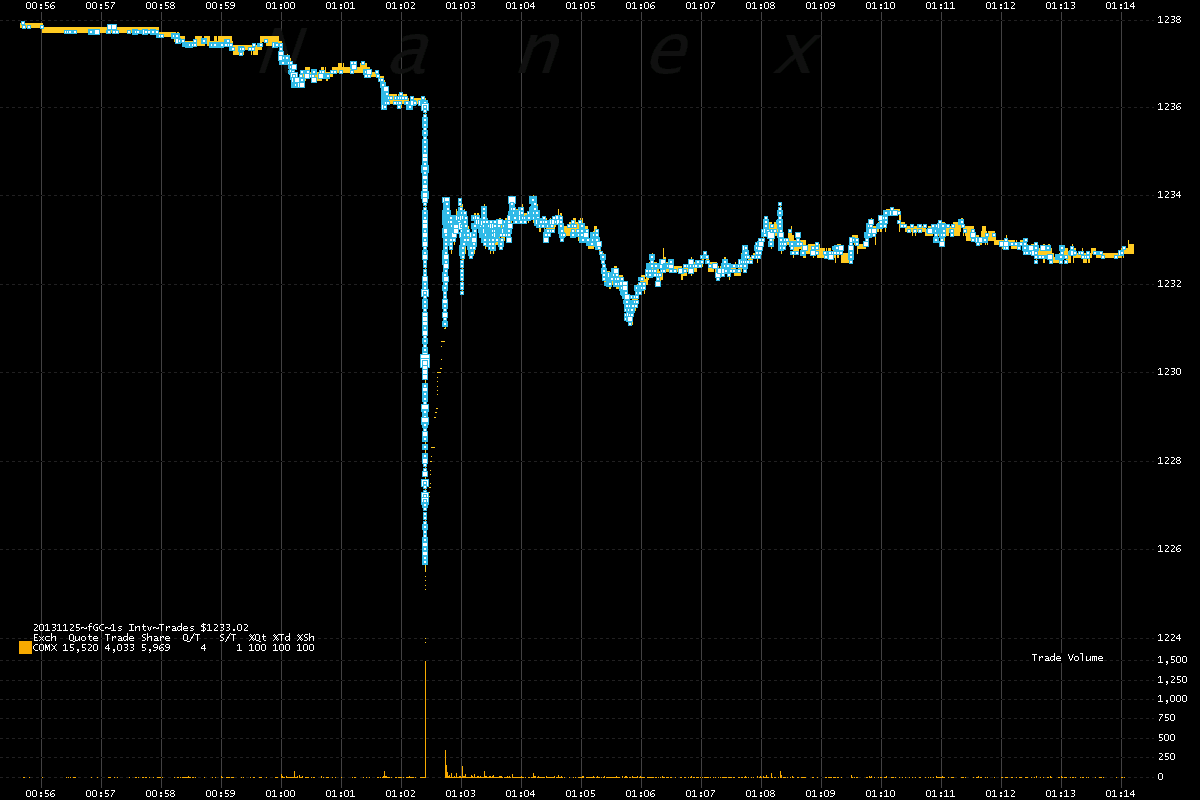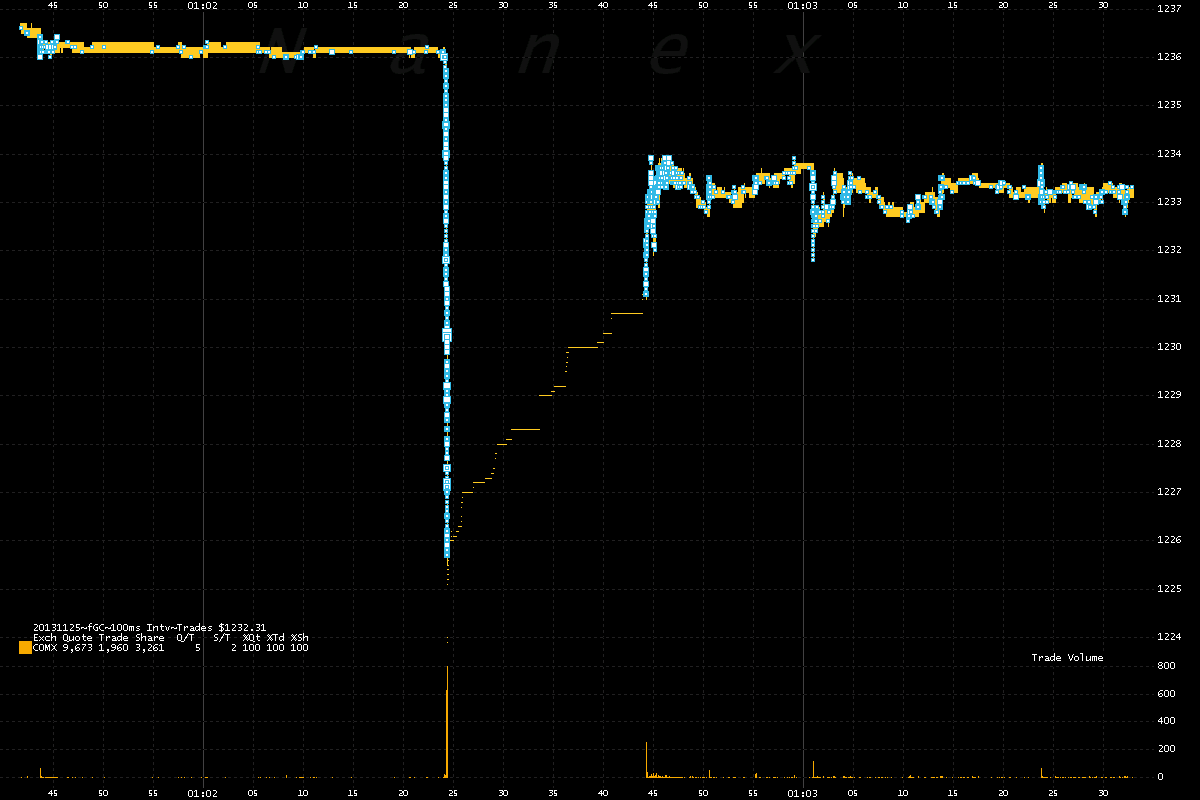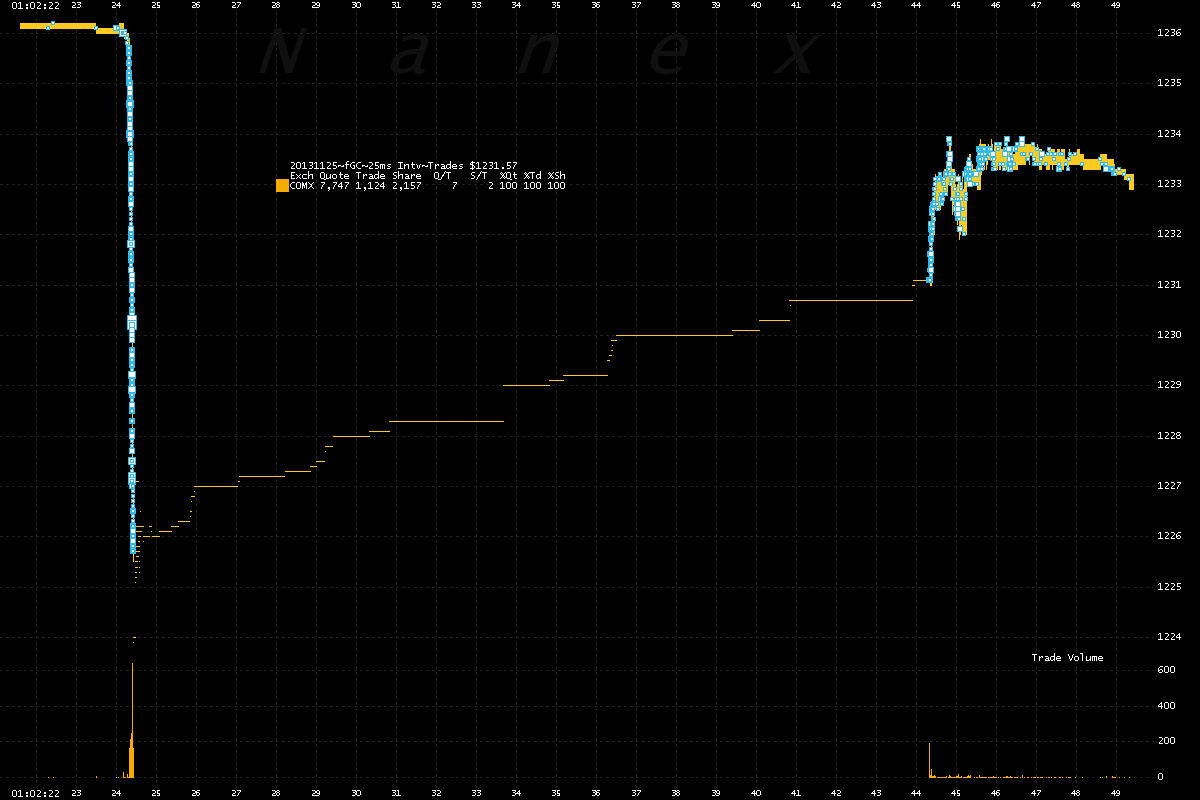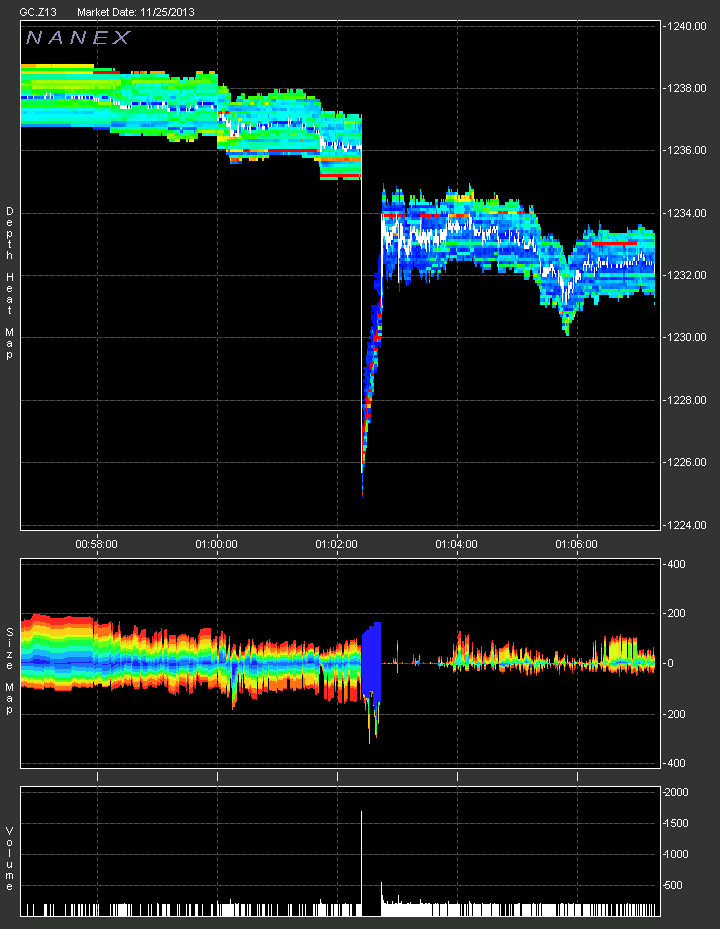- Washington turns bond market upside (FT)
- China Air-Zone Move Expands Field of Islands Spat With Japan (BBG); Japan rejects China claim on airspace over disputed islands (FT)
- ‘Great Satan’ meets ‘Axis of Evil’ and strikes a deal (Reuters)
- Iran Pact Faces Stiff Opposition (WSJ)
- Allies Fear a US Pullback in Mideast (WSJ)
- India to resume paying Iran in Euros (Economic Times)
- At ‘Business Insider,’ it’s time to sell (USA Today)
- Auto and Shipping Firms Among Potential Iran Deal Winners (BBG)
- More ECB currency war jawboning: ECB’s Hansson Says Rate Cut Options Not Fully Exhausted (BBG)
- Spy World Links Plus Obama Ties Stoke Concern About NSA Review (BBG)
- A disunited Europe will struggle even to disintegrate (FT)
- Europe needs new dream to revive fortunes (Reuters)
- Microsoft Says Initial Xbox One Sales Exceed 1 Million (BBG)
- Europe Twin Woes Fester in Draghi Job-to-Inflation Fight (BBG)
- Norway poised to relax rules to fight house price deflation (BBG)
- Bank of America Intern’s 5 A.M. E-Mail Before Death Worried Mom (BBG)
Overnight Media Digest
WSJ
* A bitterly divided Senate voted Thursday to eliminate filibusters for most presidential nominees, a momentous and politically risky step that limits the ability of Republicans to block President Obama’s choices for executive-branch and most judicial posts.
* Sales of convertible bonds are booming, as investors seeking to benefit from the roaring U.S. stock rally rush to purchase debt that can convert into shares.
* Charter Communications is nearing an agreement with banks to borrow money for a bid for Time Warner Cable , according to people familiar with the situation.
* The Dow industrials vaulted past another milestone as stocks closed above 16,000 for the first time, extending a record run fueled by optimism for a recovering global economy and continuing low interest rates.
* The U.S. plans to sell its remaining shares in General Motors by year-end, completing the final piece of the government’s controversial bailout of the nation’s largest auto maker.
* The Financial Industry Regulatory Authority is highlighting a fast-track program it began earlier this year to go after what it calls “high-risk brokers.”
* Janet Yellen’s confirmation as the next Federal Reserve chief became a virtual lock Thursday when a Senate committee approved her nomination and Senate Democrats eased the confirmation process for most presidential nominees.
* After 15 months of appeals and an eight-day retrial, a dispute between Apple Inc and Samsung Electronics Ltd over smartphone patents has come nearly full circle.
* UBS AG has reached an immunity deal with European Union antitrust authorities that will spare the giant Swiss bank from further fines for manipulation of benchmark interest rates, according to people familiar with the matter.
NYT
* A software engineer from Springfield, Missouri, Lawrence Blankenship is putting his money on PeerCoin, one of the biggest of the virtual currencies that are being promoted as alternatives to bitcoin.
* Carlson, the global hospitality and travel company, said on Friday that it had authorized a review of strategic alternatives including a possible sale of TGI Friday’s restaurants.
* A former top executive at the Credit Suisse Group was sentenced to two and a half years in prison on Friday for inflating the value of mortgage bonds as the housing market collapsed.
* The regulator of accounting firms in the United States said on Friday that Deloitte & Touche, for the second consecutive year, had failed to correct deficiencies in its audit procedures to its satisfaction.
* Skip Hop agreed Friday to sell a majority stake in itself to Fireman Capital Partners, a consumer-focused investment firm. Financial details of the transaction weren’t disclosed, but people briefed on the matter said that the deal was valued at nearly $60 million.
* Activist investor William Ackman said on Friday that he intended to take his high-stakes bet against Herbalife, the nutritional supplements company, “to the end of the earth.”
Canada
THE GLOBE AND MAIL
* Canada’s Finance Minister Jim Flaherty is once again asking opposition parties for their best ideas on the upcoming federal budget, but only if they cost the government little or no money, or don’t involve raising taxes.
* Canada’s commitment to NATO is being questioned by the military alliance, says its deputy secretary-general Alexander Vershbow, who suggests Canada is backing away.
* Protesters in Thailand’s capital entered the Finance Ministry compound on Monday in an escalating campaign to topple the government of Prime Minister Yingluck Shinawatra.
Reports in the business section:
* A report on gross domestic product out on Friday is expected to show third-quarter economic activity in Canada quickened to an annual 2.5 percent pace after growth of 1.7 percent and 2.2 percent, respectively, in the previous two quarters.
* The drumbeat of plant closings by manufacturers in Canada continued on Friday as CCL Industries Inc said it will close its aerosol manufacturing plant by the middle of 2015. The plant will begin winding down operations early next year, eliminating 170 jobs in Penetanguishene, Ontario, northwest of Toronto. ()
NATIONAL POST
* A senior Somali government official wants Canadians to pay closer attention to youths to make sure they are not being influenced by radical preachers trying to lure them into taking up arms in his country.
* The long-standing quest to bring an NFL team to Toronto has a new and unexpected ally in the form of New Jersey-b
orn rocker Jon Bon Jovi, who is part of a small group planning to bid for the Buffalo Bills and move them north when the team’s aging owner dies.
FINANCIAL POST
* Investors are going to have to work far harder in 2014 to replicate this year’s bumper gains by turning over more trades or pushing out into riskier investments.
China
PEOPLE’S DAILY
– China will focus on its recent campaign against price manipulation in six industries — aviation, daily chemicals, automobiles, telecommunications, medicals and home appliances, officials at the National Development and Reform Commission, the country’s top economic planners, said.
– A commentary by this mouthpiece of the ruling Communist Party of China (CPC) said Japan’s distortion of history to cover its war crimes means it will not be able to keep harmonious relationship with the international society.
CHINA SECURITIES JOURNAL
– Participants at the annual China Fortune Forum over the weekend forecast that 2014 will be the starting point of a new round of sweeping reforms in the country after a crucial CPC central committee plenum mapped out reform plans earlier this month.
– Economists forecast that China’s economy is likely to grow 7.7 percent in 2014, slightly slower than an estimated 7.8 percent for 2013, with the consumer price index (CPI) dropping to 2.7 percent next year from a forecast of 3.2 percent for this year.
SHANGHAI SECURITIES NEWS
– The China Banking Regulatory Commission (CBRC) has submitted new proposals relating to relaxing curbs on the country’s private banks to the State Council, the cabinet, for approval, Chen Sheng, a CBRC official, told a forum in Shanghai.
– The Dalian Commodity Exchange may launch fibreboard and veneer board futures on Dec. 6 after the China Securities Regulatory Commission announced on Friday that it had allowed the exchange to launch the futures.
CHINA DAILY
– Mercedes-Benz marked another step in the rapid expansion of its network of dealerships in China when it opened its latest retail in Shanghai.
Fly On The Wall 7:00 AM Market Snapshot
ANALYST RESEARCH
Upgrades
Alcoa (AA) upgraded to Buy from Neutral at Goldman
Bloomin’ Brands (BLMN) upgraded to Outperform from Market Perform at Raymond James
CDW Corporation (CDW) upgraded to Overweight from Equal Weight at Barclays
Caterpillar (CAT) upgraded to Buy from Neutral at BofA/Merrill
Finish Line (FINL) upgraded to Neutral from Underperform at Sterne Agee
Green Dot (GDOT) upgraded to Buy from Hold at Jefferies
R.R. Donnelley (RRD) upgraded to Buy from Hold at Benchmark Co.
Downgrades
Brocade (BRCD) downgraded to Neutral from Buy at ISI Group
Campbell Soup (CPB) downgraded to Neutral from Buy at Goldman
Clorox (CLX) downgraded to Sell from Neutral at Goldman
Deere (DE) downgraded to Market Perform from Outperform at BMO Capital
JetBlue (JBLU) downgraded to Underperform from Market Perform at Raymond James
PAA Natural Gas Storage (PNG) downgraded to Neutral from Buy at UBS
Schnitzer Steel (SCHN) downgraded to Underperform from Hold at Jefferies
Initiations
8×8, Inc. (EGHT) initiated with a Buy at Deutsche Bank
8×8, Inc. (EGHT) initiated with an Overweight at Barclays
AmSurg (AMSG) initiated with an Equal Weight at Barclays
Burger King (BKW) initiated with a Buy at Goldman
Church & Dwight (CHD) initiated with a Buy at Goldman
Criteo (CRTO) initiated with a Buy at Deutsche Bank
Criteo (CRTO) initiated with an Outperform at William Blair
Criteo (CRTO) initiated with an Overweight at JPMorgan
Energizer (ENR) initiated with a Neutral at Goldman
Essent Group (ESNT) initiated with an Outperform at Keefe Bruyette
Flowserve (FLS) initiated with a Buy at SunTrust
Navigator Holdings (NVGS) initiated with an Outperform at Imperial Capital
ONEOK (OKE) initiated with an Outperform at RW Baird
Plains All American (PAA) reinstated with a Buy at Goldman
Plains GP Holdings (PAGP) initiated with a Buy at UBS
Plains GP Holdings (PAGP) initiated with a Conviction Buy at Goldman
Plains GP Holdings (PAGP) initiated with a Market Perform at Wells Fargo
Praxair (PX) initiated with a Neutral at UBS
Springleaf (LEAF) initiated with a Buy at Citigroup
Springleaf (LEAF) initiated with an Outperform at Keefe Bruyette
Springleaf (LEAF) initiated with an Overweight at Barclays
Surgical Care Affiliates (SCAI) initiated with a Buy at Citigroup
Surgical Care Affiliates (SCAI) initiated with a Neutral at Goldman
UMB Financial (UMBF) initiated with a Market Perform at Wells Fargo
Zoetis (ZTS) initiated with a Market Perform at William Blair
HOT STOCKS
Microsoft (MSFT) said sold over 1M Xbox One consoles in less than 24 hours
The Centers for Medicare & Medicaid Services to lower 2014 home health care payments less than proposed (AMED, GTIV, LHCG, AFAM)
Pfizer India (PFE), Wyeth India to merge
Giant Interactive (GA) received proposal to be acquired for $11.75 per share
Wi-LAN (WILN), InfoSonics (IFON) signed wireless license, terms confidential
EARNINGS
Companies that beat consensus earnings expectations last night and today include:
Qihoo 360 (QIHU), Tower Group (TWGP)
Companies that missed consensus earnings expectations include:
Seadrill (SDRL)
NEWSPAPERS/WEBSITES
- Top JPMorgan Chase (JPM) attorney Stephen Cutler was confrontational with regulators Daniel Stipano of the Office of the Comptroller of the Currency and Deb Morris of the Consumer Financial Protection Bureau at a conference. “At what point does this stop?” he said, referring to record-setting fines for JPMorgan and other large banks. “We should all be concerned,” he added, “because at a certain point people become immune to the numbers,” the Wall Street Journal reports
- Services union Ver.di called for strikes today, over wages and benefits, at two of Amazon.com’s (AMZN) German locations, and threatened further action as the year’s busiest shopping season sets in, the Wall Street Journal reports
- PSA Peugeot Citroen (PEUGY) is interviewing candidates to replace CEO Philippe Varin, after Chinese partner Dongfeng said a deeper alliance under negotiation should be accompanied by management change, sources say, Reuters reports
- Lloyds Banking Group (LYG) will probably sell 30% to 50% of its stake in the 631 bank branches being rebranded as TSB when the new entity floats on the stock market in 2014, according to the Sunday Telegraph reports, Reuters reports
- Dish Network (DISH) shareholders are asking a Nevada judge to exclude the company’s chairman and controlling shareholder, Charlie Ergen, from the bankruptcy court auction of LightSquared, Bloomberg reports
- A breakup of Time Warner Cable (TWC), which Comcast (CMCSA) and Charter Communications (CHTR) are said to be considering as part of a joint bid, would let the industry consolidate while potentially sidestepping regulatory hurdles, Bloomberg reports
BARRON’S
Sirius XM (SIRI) could rise 50%
Home Depot (HD), Coach (COH), others (KSS, BBBY, M, CHS, URBN, DG, DDS) could benefit this holiday season
An acquisition could drive Berkshire Hills Bancorp (BHLB) higher
Qualcomm (QCOM) shares could rise 20%
Investors should wait on Intel (INTC)
SYNDICATE
DHT Holdings (DHT) announces sale of $110M of equity in private placement
Del Frisco’s (DFRG) files to sell 6.2M shares of common stock for holders
HealthSouth (HLS) files to sell 1.12M shares of stock, 5.4M warrants for holders
Taminco (TAM) files to sell $242.7M shares for Apollo Group affiliates







via Zero Hedge http://feedproxy.google.com/~r/zerohedge/feed/~3/fAefXKZ0mNs/story01.htm Tyler Durden



![]()







 If you’ve heard of Intrade, you probably know
If you’ve heard of Intrade, you probably know




